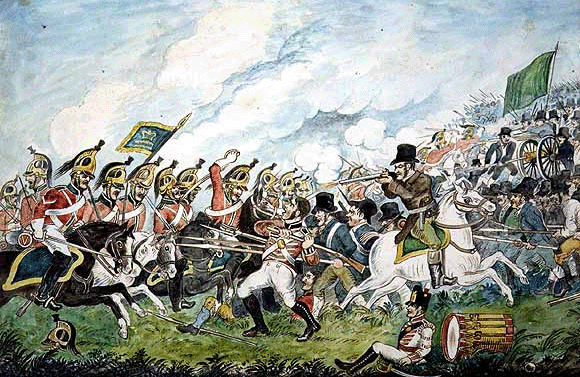 Chapter X: Under the English Heel, Part V:
Chapter X: Under the English Heel, Part V:
A Time to Stand - Rebellion, Retribution and Revenge
Timeline: 1760 - 1800
Secret Societies: Ireland Goes Underground
There have of course been secret organisations since antiquity, probably dating back to the Egyptians or farther, but they don’t seem to have surfaced in Ireland till the eighteenth century, and seem to have come about as a sort of response to the piss-poor treatment Irish Catholics were getting from their Protestant landlords. Part vigilante force, part protest and part almost mafia in makeup, they began to spring up after the Irish Famine and following the harshest of the Penal Laws. Like I said earlier, you could push a man just so far before he would eventually push back, and right or wrong, these bands of individuals - who might, perhaps, be seen as the forerunners of the Irish gangs who fought over control of areas like New York and Boston in the next century - were ready to push back, and hard.
 The Whiteboys
The Whiteboys
Not to be confused with the present-day Proud Boys, or indeed any white supremacist gang, their name derived from the white smocks they wore on their nightly raids. White doesn’t seem the perfect choice for night raids, but what do I know? Maybe they were demonstrating their contempt for the landlords, maybe they just couldn’t get black ones. An unfortunate name to choose, certainly: makes them sound like the Irish chapter of the KKK, though of course they predate those racist fu
cks, so technically they’d have been the original… you know what? Let’s just cut off that dangerous and pointless line of thought right there before it goes any further.
Anyway, the tactics employed by the Whiteboys included levelling ditches, knocking down fences, threatening behaviour including but not limited to (gasp!) writing letters, and later more direct action such as wounding or killing cattle owned by the landlord and the acquisition of firearms. They were not political in any way, not were they sectarian, welcoming all religions to their ranks. They had a problem only with landlords (though these were invariably English and Protestant) who were forcing, or endeavouring to force, poor farmers and tenants off their lands so that they could be used for grazing cattle and so inflate the landlords’ already healthy pocket books.
The first real instance of the Whiteboys arriving on the scene is around 1761 in Limerick, and indeed most of these societies practiced their art in the south, with chapters in Tipperary, Cork and as far east as Waterford. As they grew in power and became emboldened, the Whiteboys seem to have developed into an almost paramilitary force, marching in parades to old Jacobite tunes and shouldering rifles. They threatened landlords, and also those who had gained land taken from those who had been evicted, advising them to move, or they would become targets too. Those who did not accede to the Whiteboys’ demands - for instance, putting a light in their house and having horses saddled and ready for their escape if needed - also faced the society’s wrath.
It’s probably fair to say that while they may have been popular with some citizens, notably any whose lands they reclaimed from the (usually absentee) landlords, the Whiteboys were feared and hated by more, so when the Crown struck back and Charles, Marquess of Drogheda, arrested over 150 Whiteboys, including a priest who had been helping them, there wasn’t exactly outrage from the Irish citizenry, even when the priest, tried and convicted of being an accessory to murder by helping the bandits, was hanged. The Whiteboys’ somewhat indiscriminatory tactics won them few friends among the people they were supposed to be helping, and they weren’t exactly looked upon as Robin Hood figures.
So much of a problem were they seen as being by the authorities that several Whiteboy Acts were passed by Parliament, the first, the original named one, in 1765, with four more up to 1831.
Hearts of Oak
Somewhat in contrast, the Hearts of Oak (also called Oakboys and Greenboys - just get the Orange boys in there now and we’d have the tricolour!) rose in the north, in County Antrim, and were more worried about paying taxes and mending roads than landlords using their land. In Ulster, every man was required to give six days’ service and six days of horse work every year building and maintaining roads, mostly for the convenience and comfort of the contribute-nothing gentry. They also resented paying tithes, taxes payable to a Church they did not support, the Church of England. They were mostly farmers and weavers, and their name came from their habit of wearing a piece of oak leaf in their hats (why not then Hats of Oak? Probably didn’t sound as hard and cool I guess).
Their protest movement quickly spread to five other counties of Ulster, and they didn’t seem to be fans of turnpike toll roads either, which you can understand; if they were responsible for maintaining the roads, why then should they also have to pay to travel them? Then there was the matter of “small dues”, where the Church would demand a payment from Catholics or Presbyterians who got married, held funerals or had a child baptised, whether or not it took place in an Anglican church. The Hearts of Oak seem to have had two ways of inducing people to join, one being to force or intimidate them and the other being to attract them via the lavish parades and marches they put on, an almost carnival-like atmosphere that differed radically from their southern counterparts’ militaristic displays.
They seem to have been less overtly violent, relying on threats and warnings rather than causing actual harm; they forced landowners, gentry and clergy to sign their petitions, turning up in force outside their houses and bringing along a handy gallows which the homeowner was left in no doubt they would use if he refused, and their power grew to the level that their demands were met, and those who did not comply were often run out of the town by them. Like the Whiteboys, they were eventually routed by the military, but unlike their compatriots, who had, as mentioned, actual Parliamentary Acts passed about them, the Oakboys received a general pardon and by 1763 had more or less disbanded.
 Peep o’ Day Boys
Peep o’ Day Boys
While the above two groups were a mix of religions - mostly Presbyterian and Catholics - the Peep o’ Day Boys (nothing to do with lost sheep) were exclusively Protestant, and they too rose in Armagh, though about twenty years after the Oakboys. In contrast with most of Ulster, Armagh was in fact more or less about equal in its population of Catholics and Protestants, and the relaxing of some of the Penal Laws - specifically those allowing Catholics to vote and purchase land - irked the Protestants, who believed the heretics were getting off too lightly. Neither did they take kindly to being outbid on land plots by mere Catholics! Tensions were simmering and would soon reach a boiling point, though for the record most of the rest of Ireland was relatively at peace.
Not in Armagh though! Gangs began to be formed, like the Presbyterian Nappach Fleet Gang, the Protestant Bawn and the Catholic Bunker Hill Defenders, usually just shortened to Defenders. Each prepared for battle with the others, and in a scene reminiscent of Scorsese’s Gangs of New York, agreed to meet on Whit Monday 1785 and duke it out. When the battle was called off, the gangs dispersed but the Nappach Fleet turned to raiding Catholic homes and renamed themselves the Peep o’ Day Boys, the name being a local colloquialism for break of day, to tie in with their dawn raids. These raids were ostensibly to deprive Catholics of weapons, which under the Penal Laws they were forbidden to carry or own (though this law was rarely if ever observed and never enforced), but really it was just a pretext to beat up Catholics, whom they feared were getting too strong and close to being equal with them, which would never do.
As the Catholics armed themselves in defence against these attacks, battle lines were drawn and things were coming to a head.
The Defenders
Originally formed as the Bunker Hill Defenders, this Catholic organisation came into being in direct response to the raids made by the Protestant Peep o’ Day Boys. It should have come as no surprise to anyone; Ulster was Protestant-dominated (despite the distribution of populace in Armagh, Penal Laws and local prejudices kept Catholics out of most positions of power, so the authorities were almost exclusively Protestant) and while they did not exactly turn a blind eye to the attacks on Catholic homes, they didn’t exactly go after the perpetrators in any real way either, unlike the Whiteboys. There’s no evidence to suggest such, but you’d have to think that on some level they might even have tacitly supported or encouraged them. Left with nobody to speak for or protect their people, the Catholics naturally formed their own society.
Perhaps oddly for Catholics, their oath included a promise of loyalty to King George III; they took to patrolling at night, on the lookout for the Peep o’ Day Boys, at first buying arms from a Protestant shop but later raiding the homes of the gentry to get their weapons. The Defenders would be the most long-lived of the secret societies in Ireland, later linking up with the Ribbonmen and the United Irishmen as Ireland began to fight back in a serious way. The two gangs regularly fought it out, meeting often at markets and fairs, laying waste to all around them and causing much bodily harm, even occasionally death, and terrorising the towns. These periods of gang warfare were known, in a typically understated Irish way (after all, we called over thirty years of sectarian violence “The Troubles” and for us World War II was “The Emergency”!) as “The Armagh Disturbances”.
There we’ll leave them for now, but the Defenders have a bigger part to play in the attempt to liberate their country, as we’ll see later.
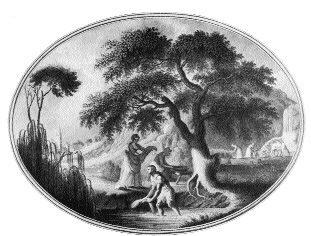 Hearts of Steel
Hearts of Steel
Like the Hearts of Oak, they were a Protestant organisation, but unlike their almost-namesakes they concentrated more on rent and evictions. In that way, they could perhaps be said to be a hybrid organisation, taking elements from the Whiteboys and the Hearts of Oak. They too operated in Antrim, which certainly seemed to be a hotbed of conflict in an otherwise peaceful Ireland in the middle of the eighteenth century. They arose later than the Hearts of Oak, possibly considered their successors, in 1769, as a direct rebuff to the middlemen, speculators who bought land from absentee landlords and rented it at twice or three times the price they had paid, to poor (presumably Protestant) tenants, thereby profiteering.
Incensed by the capture and imprisonment of a tenant who had been forced off his land by a greedy landlord who sold it to a middleman, the tenant charged with maiming the landlord’s cattle, the Hearts of Steel surrounded his house and threatened to burn it down if the man was not released. Though charged by the army, the Hearts of Steel carried through on their threat, and rather than see further destruction, the mayor agreed to release the prisoner. High rents and a poor harvest led to deprivation for the poor, and the Hearts of Steel took up this cause and fought for it.
They maimed cattle (“houghing”), demanded land be leased at a fair rate, and forced farmers to sell food at affordable prices. In March 1772 a huge force of about 2000 Steelboys descended on Gifford Castle, scene of the taking of their leaders a few days earlier, and engaged in a pitched battle with the owner of the castle, Richard Johnston, forcing him to flee. He returned however with military support and drove them off, later pursuing and hunting them down so that they could stand trial in Dublin, where, for some reason, none were found guilty.
Nevertheless, the end was near for the Hearts of Steel, as the Irish government, fed up with the Armagh disturbances, sent in the army and brutally repressed the protests.
Although Irishmen had fought against English occupation for hundreds of years, almost always this was along sectarian lines. Catholics, dispossessed and disenfranchised, and under some English monarchs tortured and killed in great numbers, wished really only to be equal with the Protestant settlers who had been forced upon them. Truth to tell, many probably wanted the Ascendancy out of Ireland, but at the same time nobody really envisioned or fought for an independent Ireland, so far as I can see, unlike the Scots who battled bravely for their right to self-governance in the thirteenth and fourteenth centuries.
To some degree, I imagine, the protection of the English king or queen, rather than their wrath, would have been preferred by the Irish, and while they struggled to replace Protestant monarchs on the English throne with more sympathetic Catholic ones, it doesn’t seem as if any Irish tried to bring down the actual monarchy. Even the Gunpowder Plot, orchestrated by Catholics, did not see the government of England disappearing, only replaced by one they wanted. In theory, it’s likely that, had the monarch of any era granted Catholics in Ireland the same rights as Protestants, the Irish would have been happy to have continued to be subservient to the English Crown.
So it would appear that the first real efforts at true independence for Ireland came in the middle of the eighteenth century, and his was one of the first, if not the first, attempt at releasing Ireland from its forced union with Great Britain.
What’s more, he achieved his aim.
Kind of.








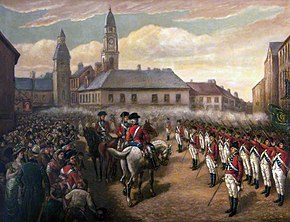
 ..
..
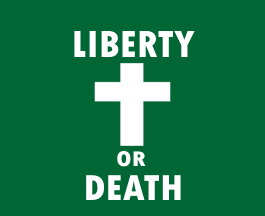



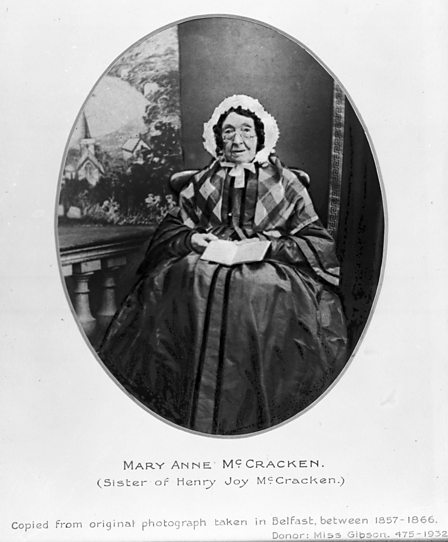



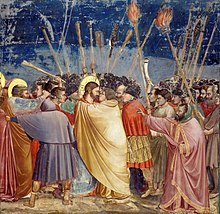
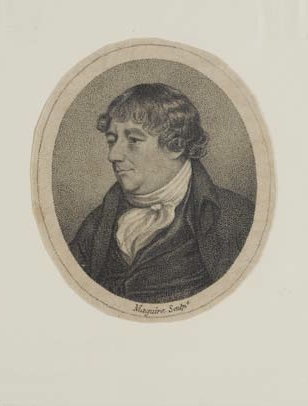

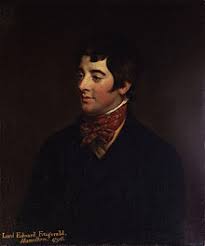
 Linear Mode
Linear Mode
